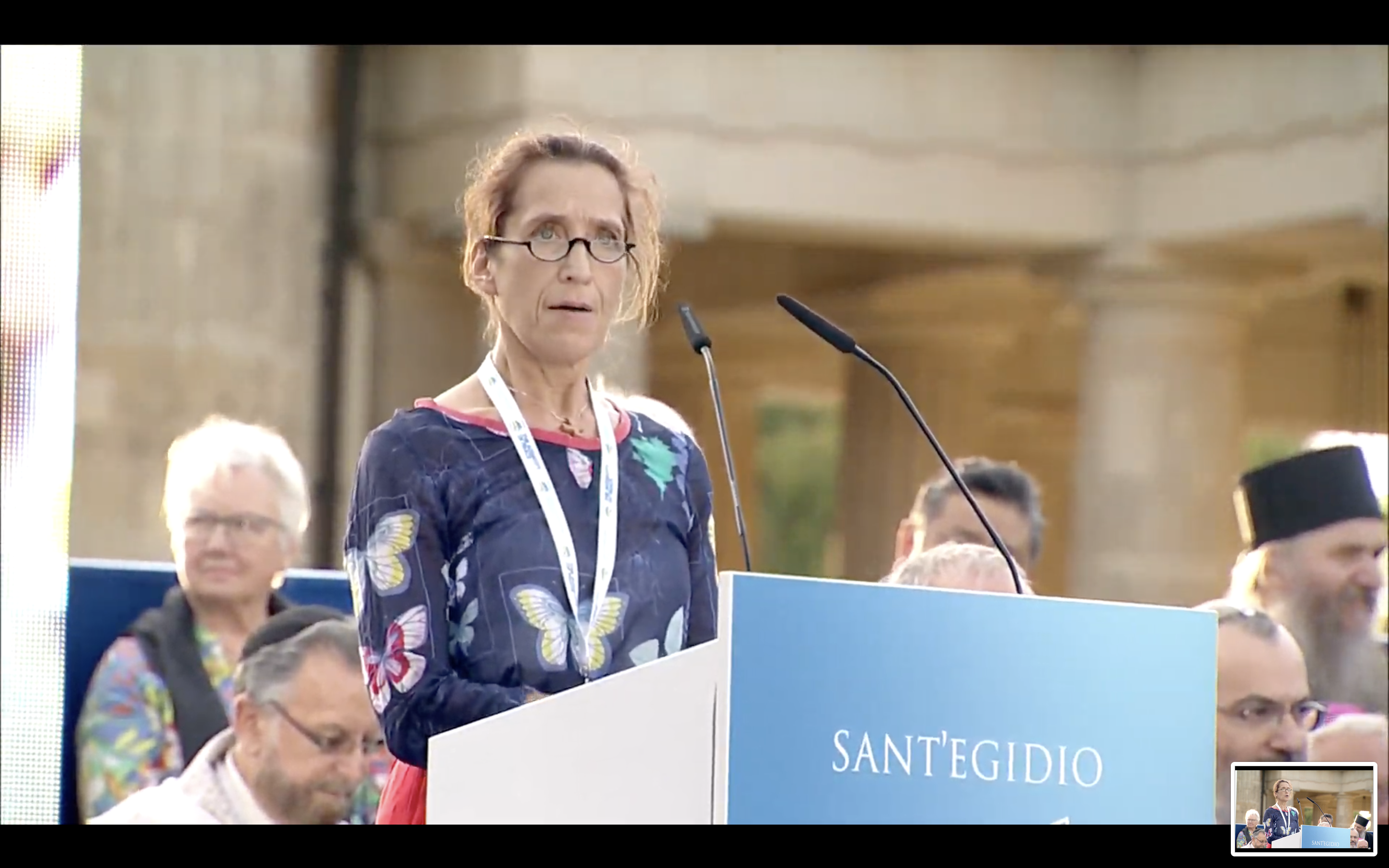12th September 1989 was a Tuesday, just like today. I had just turned 25 and was living in the Bergstraße in East Berlin. The street was divided by the Wall. One side was in the west, the other in the east of the city - today The Wall Museum is located there. Even today, when I think about it, it seems like a miracle!
At that time there was a great sense of resignation in the German Democratic Republic. In 1989 alone, over 200,000 people illegally fled to the West. Anyone protesting in the country was arrested. Then, on 3rd October, the last open gate between the GDR and Czechoslovakia was closed. We were surrounded by walls. The army marched through the streets and prepared to violently repress any protest. 8th October 1989, the 40th anniversary of the German Democratic Republic, was to pass without incident. What to do? I felt fear, but also hope: it was time to make a decision.
In the evangelical church of Gethsemane, 5 kilometres away from here, in Prenzlauerberg, we had been praying on a daily basis for peace and for those under arrest. On 4th October, I started fasting as a sign and an example of non-violent resistance. This decision has changed my life.
From then on, I sat in the church, now continuously open day and night, fasting and praying. I could no longer leave the church, otherwise I would have been immediately arrested. Many people joined the fasting to protest and even more friends supported me in prayer. We sang Taize songs and prayed with the Psalms. Every evening at 6pm, thousands of people came to church to join in the prayer for peace. Many would enter the church for the first time in their lives. Whenever there was a disturbance, I would approach the microphone to sing the canon "Dona nobis pacem" with those present. Then, on 7th and 8th October, hundreds of people were arrested after the prayer and taken away by the trucks of the army. At first nobody knew where they had been taken and what was happening to them.
On Monday 9th October we were particularly tense following the events of the days before. Long before the prayer for peace, the church was already full. As soon as the prayer began, at 6pm, the church was isolated and cordoned off from the outside by the police and the army. We feared the worst. We sang, prayed, and hoped. And then we heard about Leipzig: thousands of people were demonstrating in the city centre after the prayer and the police and army had not intervened! We opened the doors of the Gethsemane church and saw the water cannons and army trucks driving away and the police retreating. It was unbelievable!
Singing and holding candles, people came out onto the street in front of the church and many others joined them. From then on, there was no mean to stop them from coming. Every evening more and more people came to the church and then went out into the street.
One month later, on 9th November, the Wall fell. A leading politician from the German Democratic Republic said afterwards: 'We expected everything, but certainly not candles and prayers'. Of course, many factors contributed. But after this experience, I am convinced that prayers have a transformative power, can accelerate peaceful change in societies and break down walls!
